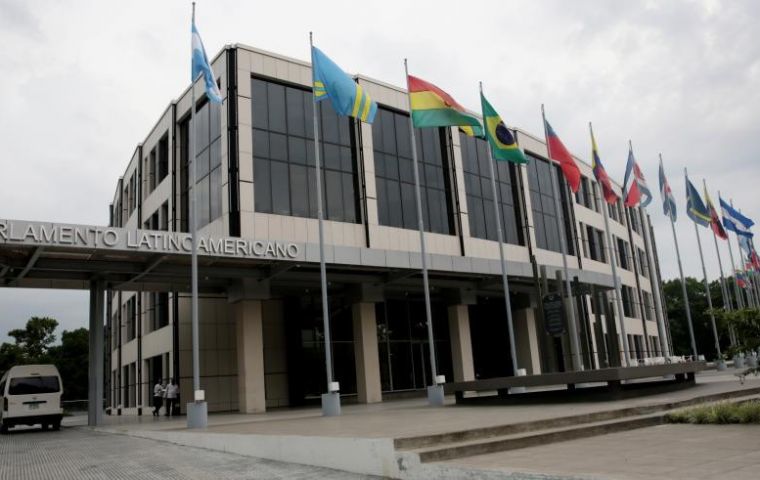MercoPress. South Atlantic News Agency
Parlatino urges member countries to tackle ballooning food prices
 It is more important than ever that all sectors can develop public policies and actions for the transformation of agrifood systems,” Giaccoppo said
It is more important than ever that all sectors can develop public policies and actions for the transformation of agrifood systems,” Giaccoppo said The Latin American and Caribbean Parliament (Parlatino) Tuesday urged its 23 member countries to take measures to curb the soaring food prices which are reaching unprecedented highs, according to the food price index kept by the Food and Agriculture Organization of the United Nations (FAO).
“We must join efforts to promote laws and public policies to mitigate the effects of rising food prices in our region and the world, focusing on the most vulnerable people,” said Parlatino Speaker Silvia Giaccoppo in a statement.
Giaccoppo also called for “collective solutions” so as to not leave anyone behind.
Last March, the FAO food price index reached an average of 159.3 points, the highest level since its creation in 1990. A figure that was surpassed after it grew by 12.6% - a record high - with respect to the previous month.
During the last G20 meeting, FAO called for the creation of a global Food Import Financing Facility (FFIA) to help the poorest countries cope with the escalation of prices caused by the war in Ukraine, the Parlatino statement also pointed out.
The FFIA, which also seeks to increase global agricultural production and productivity in a sustainable manner, is one of six policy proposals put forward by FAO in response to the Ukraine crisis and its impacts on food and fertilizer prices.
“Hunger and food insecurity increased between 2019 and 2020 in a pandemic context. Rising food prices, economic, social, and environmental impacts can have a profound impact on hunger and malnutrition in all forms,” said FAO Food Security Policy Officer Daniela Godoy.
“Therefore, it is more important than ever that all sectors can develop public policies and actions for the transformation of agrifood systems,” she added.
The Parlatino declaration also suggested strengthening the Parliamentary Front against Hunger in Latin America and the Caribbean, promoting access to national and international markets, and supporting family farming. It also urged countries to monitor food prices, and expand social protection measures and international cooperation.
The Latin American Parliament (Parlatino) was established Dec. 7, 1964, as a regional, permanent, and unicameral body, composed of the national parliaments of Latin America, democratically elected by popular suffrage, whose countries signed the Treaty of Institutionalization Nov. 16, 1987, in Lima, Peru, and others which joined after that.
The current members of Parlatino are Argentina, Aruba, Bolivia, Brazil, Chile, Colombia, Costa Rica, Cuba, Curaçao, Dominican Republic, Ecuador, El Salvador, Guatemala, Honduras, Mexico, Nicaragua, Panama, Paraguay, Peru, Sint Maarten, Suriname, Uruguay, and Venezuela.




Top Comments
Disclaimer & comment rulesCommenting for this story is now closed.
If you have a Facebook account, become a fan and comment on our Facebook Page!